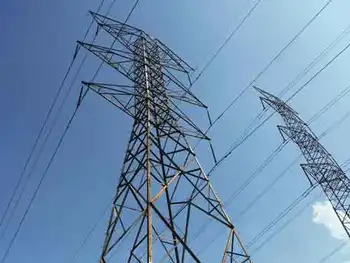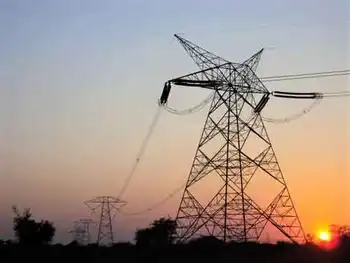Upfront costs remain biggest hurdle for solar
By McClatchy Tribune News
Substation Relay Protection Training
Our customized live online or in‑person group training can be delivered to your staff at your location.

- Live Online
- 12 hours Instructor-led
- Group Training Available
Save the planet. Make a buck. Who wouldn't sign up? Trouble is, you can't do it here yet.
• The Tucson City Council wants to follow the lead of Berkeley, Calif., which is developing a program to allow the cost of solar installation to be paid back long-term through a charge on your property tax bill. First hitch for Tucson - it requires a change in state law to do the program here.
• SolarCity, a California firm, sent out a press release recently promising to bring its zero-down lease program to Arizona. That release was premature and SolarCity has no immediate plans to come to Tucson, though it is setting up an office in Phoenix, said company spokesman Jonathan Bass.
• Another solar startup firm, Citizenre, is signing people up in Tucson but doesn't yet have the money to buy the land to build the factory to make the solar panels it promises to put on your roof. All three plans take aim at solar power's biggest hurdle - the large upfront cost of becoming your own energy producer. Hundred of Tucsonans are already generating their own power, swayed not by economics but by a desire to use a cleaner form of energy in their homes. Solar power wouldn't begin to make pure business sense without the generous rebate from utility companies, funded by an Arizona Corporation Commission-allowed charge and tax credits currently available from federal and state governments.
Even with that, solar doesn't pay for itself for 10 to 20 years, depending on system efficiency, customer use and the cost of electricity. In Tucson, rebates and credits cover about 55 percent of the cost of photovoltaic panels and the equipment needed to connect to the electric grid. A $30,000 system that will generate most of the average home's needs still costs the homeowner $13,446, said solar installer George Villec, owner of Geo Innovation.
That 4.56-kilowatt (a kilowatt is a thousand watts) array will yearly produce 8,117 kilowatt hours of electricity, worth about $75 a month, Villec said.
Because the systems are tied into the utility company's electric grid, the customer gets credit for power that isn't used at the time it is generated. At current electrical rates, Villec said, it will take 11 years for the systems he sells to pay off.
Many people are willing to make that investment, said Villec, who said demand for solar is strong locally and would certainly increase if payments could be structured to match the savings on electric bills.
Solar's arithmetic is bound to get better in coming years as the price of components goes down and the cost of power goes up, said Villec. It already makes sense if you regard it as a hedge against future energy hikes, said solar entrepreneur Jake Stephens.
Stephens said solar should be especially appealing to retirees who intend to stay in their homes for the next decade and would like a fixed utility rate to match their fixed income. Stephens said the city should offer the bond program, and the state should be offering more incentives and requiring solar features in new construction if Arizona wants to benefit from the coming solar boom. Unless Arizona grows its own solar industry, he said, firms in neighboring states will benefit from the coming demand. "Arizona should choose to be a global leader in an industry that is its birthright," Stephens said.
Stephens said he'd be wary of companies that claim they can deliver rented solar for the price of an electric bill in Arizona, where electric rates are low. Stephens is president of GreenSun, a business he and three partners formed when they were students in the University of Arizona's Eller MBA program.
The plan was to install and service solar systems for commercial businesses who would pay it back through a charge on the power it generated. The model worked, said Stephens, but small businesses weren't able to immediately use the tax credits because of alternative-minimum-tax rules.
At the larger-scale end of the business, he found it tough to compete with extremely low power rates in Arizona. GreenSun is still consulting with businesses, but installations are on hold for now, he said, while he concentrates on utility-scale projects with a new company.
Stephens said he'd be wary of Citizenre's claims, the subject of a raging debate in the alternative-energy blogosphere. Citizenre, which announced plans in 2006 to build and rent solar panels for the cost of the savings they net in utility bills, has signed up 30,849 customers nationwide, according to its Web site, including 253 Tucsonans.
It is building its business from the bottom, said Erika Morgan, Citizenre's senior vice president for communications. It is signing up customers first, then raising the money to manufacture its systems.
Its Web site boasts 1,678 sales associates, which it calls "ecopreneurs." Once it gets going, said Morgan, it will install 100,000 roofs a year.
"Citizenre makes too many fantastic claims," said Stephens. "People already have unrealistic expectations of what solar can do for them." Morgan said the company's claims are based on realistic projections, but she understands that many are leery of signing up with a company that has yet to produce or install a solar panel.
"I would say the risk of not getting going is always real in a startup, but nobody has put any money down, so there is no risk," Morgan said. Local green-builder Michael Keith said he signed up for more information at a booth Citizenre had at the home show last fall and was told he'd soon be contacted for an inspection of his roof.
When he wasn't contacted, he called Citizenre's local representative and was sent a contract in November. He signed it and sent it back, then called again and was told he was a good candidate for a pilot program. He is now soliciting bids from local companies to install solar panels and a solar water heater on his roof.
SolarCity's entry into the Arizona market could be good news, said Corporation Commissioner Bill Mundell.
SolarCity has installed more than 1,000 residential and commercial systems in California since the beginning of 2007, said a SolarCity spokesman. It announced its lease program in California in April and a limited-time "zero-down" lease program last month.
Details differ in each utility area, but the company tailors its plans to keep customer's future utility bills at or below what they currently pay, building in annual increases based on the utility company's historical rate increases.
That would be tough to do in Tucson, where basic electricity rates haven't risen since 1996, said Joe Salkowski, TEP spokesman. Rates will rise, under a tentative agreement with the Arizona Corporation Commission, by 6 percent this year, with an additional fuel-cost boost, but basic rates will then be frozen until 2013 if that plan is approved.
Fuel costs will continue to rise, said Corporation Commissioner Mundell, who said SolarCity's proposed increases of 3.5 percent a year don't seem out of line with predicted increases in power costs.
Mundell said the commission has not been approached by any solar-lease installers. It's a good idea for jump-starting solar installations, he said, "but the devil is in the details."











